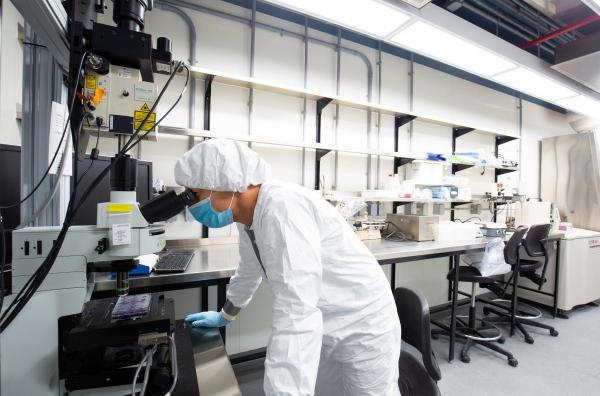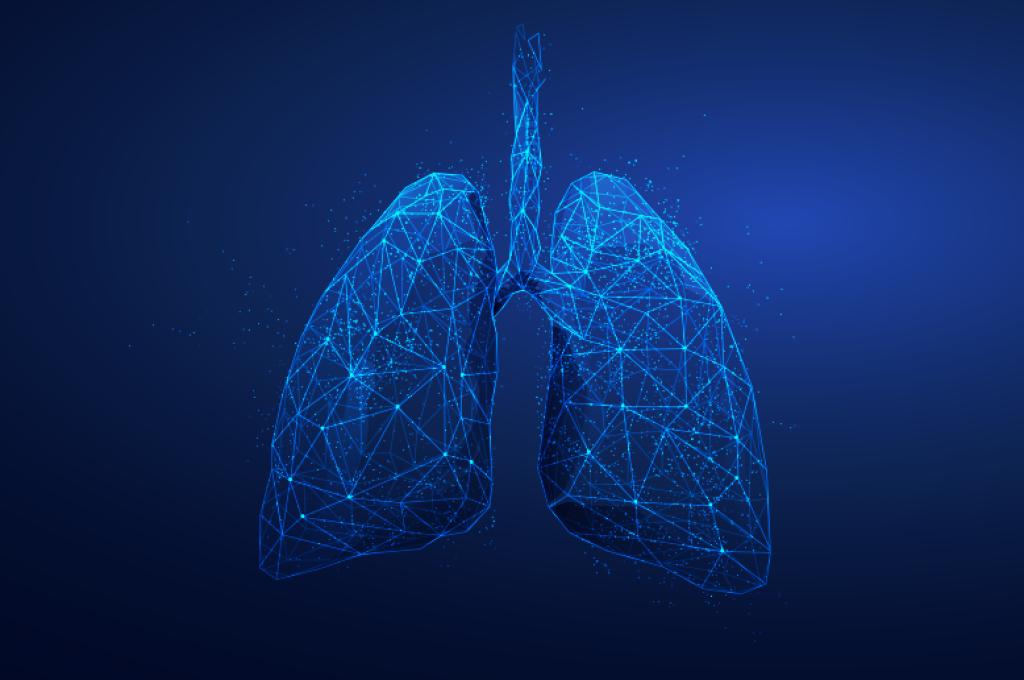COVID-19 has, so far, been understood and treated as a respiratory disease. However, a growing body of evidence shows that it could actually be a vascular disease — that is, one that affects the blood vessels.
Paul Kubes and his research team at the University of Calgary plan to apply their expertise in lung infections and use their state-of-the-art lab — the only one in Canada that can look into lung blood vessels and see viruses and individual immune cells — to determine if that hypothesis is true.
Highly specialized microscopes will reveal what organs and cells the virus infects
|

Paul Kubes looks through a specialized microscope in his lab at the University of Calgary.
Image courtesy of Riley Brandt, University of Calgary
|
“Right now, we have no clue what the virus is doing inside the body,” says Kubes. He and his team plan to resolve this by using highly specialized microscopes to “visualize what is actually happening inside the body, bloodstream, organs and cells. We will see where the virus is infecting. To my knowledge, nobody is doing this in living, breathing animals.”
Currently, there is widespread data that show blood clots and infection in the endothelial cells in the lungs of people who died from COVID-19. Endothelial cells line the inside of blood vessels, and protect the cardiovascular system. An infection of the blood vessels would explain many of the unusual effects seen with the novel coronavirus such as the high rates of thrombosis (formation of blood clots), leading to strokes and other cardiovascular issues.
Lifesaving treatments may already exist

“If SARS-CoV-2 is an endothelial virus, the approaches we are taking are not the right approaches,” explains Kubes. “We need to be much more worried about clotting and poor blood profusion of vital organs. But there are drugs available that can counter these problems.”
By uncovering whether COVID-19 does infect blood vessels, new lifesaving approaches can then be taken to treat it. If verified, Kubes believes existing therapies could go straight to clinical trial to treat vascular COVID-19 complications by the end of 2020.







